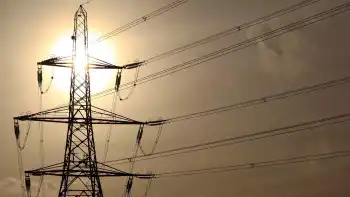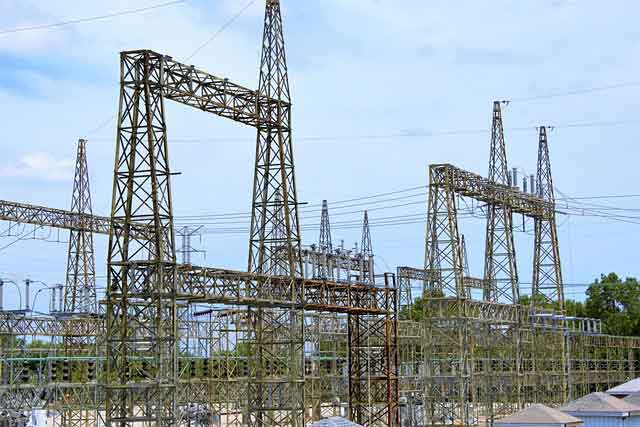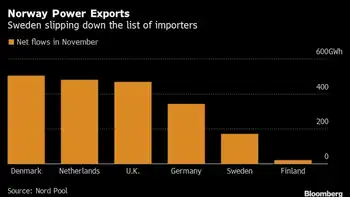Energy equity in utility regulation prioritizes fair rates, clean energy access, and DERs, addressing fixed charges and energy burdens on low-income households through stakeholder engagement and public utility commission reforms.
Key Points
Fairly allocates clean energy benefits and rate burdens, ensuring access and protections for low-income households.
✅ Reduces fixed charges that burden low-income households
✅ Funds community participation in utility proceedings
✅ Prioritizes DERs, energy efficiency, and solar in impacted areas
By Kiran Julin
Pouring over the line items on your monthly electricity bill may not sound like an enticing way to spend an afternoon, but the way electricity bills are structured has a significant impact on equitable energy access and distribution. For example, fixed fees can have a disproportionate impact on low-income households. And combined with other factors, low-income households and households of color are far more likely to report losing home heating service, with evidence from pandemic power shut-offs highlighting these disparities, according to recent federal data.
Advancing Equity in Utility Regulation, a new report published by the U.S. Department of Energy’s (DOE’s) Lawrence Berkeley National Laboratory (Berkeley Lab), makes a unifying case that utilities, regulators, and stakeholders need to prioritize energy equity in the deployment of clean energy technologies and resources, aligning with a people-and-planet electricity future envisioned by advocacy groups. Equity in this context is the fair distribution of the benefits and burdens of energy production and consumption. The report outlines systemic changes needed to advance equity in electric utility regulation by providing perspectives from four organizations — Portland General Electric, a utility company; the National Consumer Law Center, a consumer advocacy organization; and the Partnership for Southern Equity and the Center for Biological Diversity, social justice and environmental organizations.
“While government and ratepayer-funded energy efficiency programs have made strides towards equity by enabling low-income households to access energy-efficiency measures, that has not yet extended in a major way to other clean-energy technologies,” said Lisa Schwartz, a manager and strategic advisor at Berkeley Lab and technical editor of the report. “States and utilities can take the lead to make sure the clean-energy transition does not leave behind low-income households and communities of color. Decarbonization and energy equity goals are not mutually exclusive, and in fact, they need to go hand-in-hand.”
Energy bills and electricity rates are governed by state laws and utility regulators, whose mission is to ensure that utility services are reliable, safe, and fairly priced. Public utility commissions also are increasingly recognizing equity as an important goal, tool, and metric, and some customers face major changes to electric bills as reforms advance. While states can use existing authorities to advance equity in their decision-making, several, including Illinois, Maine, Oregon, and Washington, have enacted legislation over the last couple of years to more explicitly require utility regulators to consider equity.
“The infrastructure investments that utility companies make today, and regulator decisions about what goes into electricity bills, including new rate design steps that shape customer costs, will have significant impacts for decades to come,” Schwartz said.
Solutions recommended in the report include considering energy justice goals when determining the “public interest” in regulatory decisions, allocating funding for energy justice organizations to participate in utility proceedings, supporting utility programs that increase deployment of energy efficiency and solar for low-income households, and accounting for energy inequities and access in designing electricity rates, while examining future utility revenue models as technologies evolve.
The report is part of the Future of Electric Utility Regulation series that started in 2015, led by Berkeley Lab and funded by DOE, to encourage informed discussion and debate on utility trends and tackling the toughest issues related to state electric utility regulation. An advisory group of utilities, public utility commissioners, consumer advocates, environmental and social justice organizations, and other experts provides guidance.
Taking stock of past and current energy inequities
One focus of the report is electricity bills. In addition to charges based on usage, electricity bills usually also have a fixed basic customer charge, which is the minimum amount a household has to pay every month to access electricity. The fixed charge varies widely, from $5 to more than $20. In recent years, utility companies have sought sizable increases in this charge to cover more costs, amid rising electricity prices in some markets.
This fixed charge means that no matter what a household does to use energy more efficiently or to conserve energy, there is always a minimum cost. Moreover, low-income households often live in older, poorly insulated housing. Current levels of public and utility funding for energy-efficiency programs fall far short of the need. The combined result is that the energy burden – or percent of income needed to keep the lights on and their homes at a healthy temperature – is far greater for lower-income households.
“While all households require basic lighting, heating, cooling, and refrigeration, low-income households must devote a greater proportion of income to maintain basic service,” explained John Howat and Jenifer Bosco from the National Consumer Law Center and co-authors of Berkeley Lab’s report. Their analysis of data from the most recent U.S. Energy Information Administration’s Residential Energy Consumption Survey shows households with income less than $20,000 reported losing home heating service at a pace more than five times higher than households with income over $80,000. Households of color were far more likely than those with a white householder to report loss of heating service. In addition, low-income households and households of color are more likely to have to choose between paying their energy bill or paying for other necessities, such as healthcare or food.
Based on the most recent data (2015) from the U.S. Energy Information Administration (EIA), households with income less than $20,000 reported losing home heating service at a rate more than five times higher than households with income over $80,000. Households of color were far more likely than those with a white householder to report loss of heating service. Click on chart for larger view. (Credit: John Howat/National Consumer Law Center, using EIA data)
Moreover, while many of the infrastructure investment decisions that utilities make, such as whether and where to build a new power plant, often have long-term environmental and health consequences, impacted communities often are not at the table. “Despite bearing an inequitable proportion of the negative impacts of environmental injustices related to fossil fuel-based energy production and climate change, marginalized communities remain virtually unrepresented in the energy planning and decision-making processes that drive energy production, distribution, and regulation,” wrote Chandra Farley, CEO of ReSolve and a co-author of the report.
Engaging impacted communities
Each of the perspectives in the report identify a need for meaningful engagement of underrepresented and disadvantaged communities in energy planning and utility decision-making. “Connecting the dots between energy, racial injustice, economic disinvestment, health disparities, and other associated equity challenges becomes a clarion call for communities that are being completely left out of the clean energy economy,” wrote Farley, who previously served as the Just Energy Director at Partnership for Southern Equity. “We must prioritize the voices and lived experiences of residents if we are to have more equity in utility regulation and equitably transform the energy sector.”
In another essay in the report, Nidhi Thaker and Jake Wise from Portland General Electric identify the importance of collaborating directly with the communities they serve. In 2021, the Oregon Legislature passed Oregon HB 2475, which allows the Oregon Public Utility Commission to allocate ratepayer funding for organizations representing people most affected by a high energy burden, enabling them to participate in utility regulatory processes.
The report explains why energy equity requires correcting inequities resulting from past and present failures as well as rethinking how we achieve future energy and decarbonization goals. “Equity in energy requires adopting an expansive definition of the ‘public interest’ that encompasses energy, climate, and environmental justice. Energy equity also means prioritizing the deployment of distributed energy resources and clean energy technologies in areas that have been hit first and worst by the existing fossil fuel economy,” wrote Jean Su, energy justice director and senior attorney at the Center for Biological Diversity.
This report was supported by DOE’s Grid Modernization Laboratory Consortium, with funding from the Office of Energy Efficiency and Renewable Energy and the Office of Electricity.
Related News













